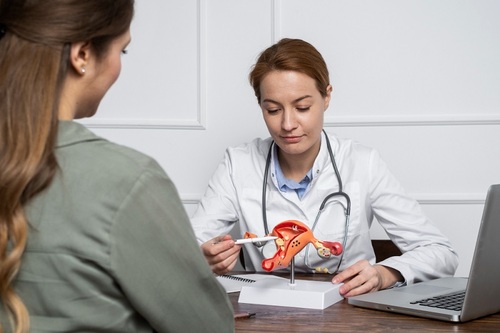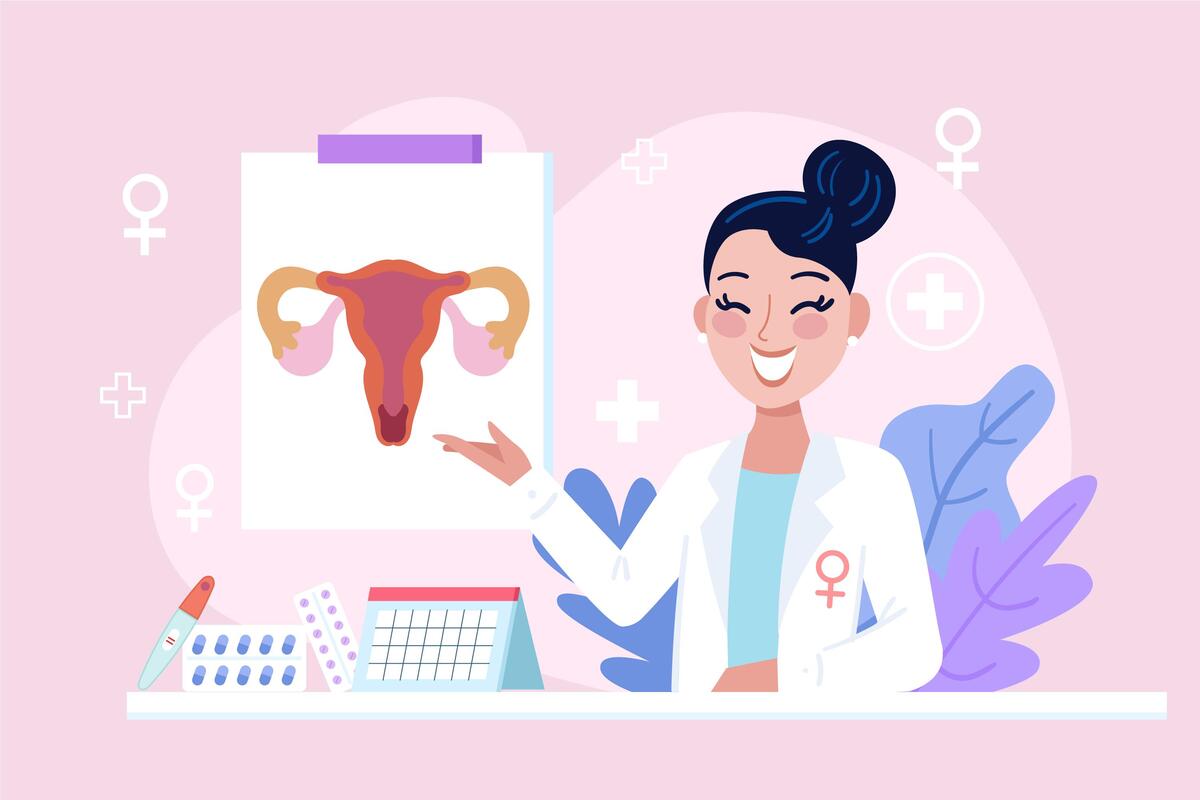Endometriosis, a chronic gynecological condition affecting millions of women worldwide, poses significant challenges in both diagnosis and treatment. Characterized by the growth of endometrial-like tissue outside the uterus, it often leads to debilitating symptoms such as pelvic pain, menstrual irregularities, and infertility. In navigating the complexities of managing endometriosis, individuals may seek assistance from specialized healthcare providers and facilities, including the best IVF center in Indore, which offer comprehensive care and advanced reproductive technologies to address fertility concerns associated with this condition.
Causes of Endometriosis:

The exact cause of endometriosis remains unclear, but several theories exist. These include retrograde menstruation, where menstrual blood flows backward into the pelvic cavity instead of exiting the body, genetic predisposition, hormonal imbalances, immune system disorders, and environmental factors. However, no single theory fully explains the development of endometriosis, suggesting it may be a combination of these factors.
Symptoms of Endometriosis:
Endometriosis manifests differently in each individual, but common symptoms include:
- Pelvic Pain: Chronic pelvic pain, often worsening during menstruation, is a hallmark symptom of endometriosis. This pain may also occur during intercourse or bowel movements.
- Menstrual Irregularities: Women with endometriosis may experience heavy or irregular menstrual bleeding, along with clots and prolonged periods.
- Painful Intercourse: Dyspareunia, or pain during sexual intercourse, is another common symptom, often localized to deep penetration.
- Infertility: Endometriosis can significantly impair fertility. Scar tissue and adhesions from endometrial implants may obstruct the fallopian tubes or disrupt the normal function of reproductive organs, making conception difficult.
- Gastrointestinal Symptoms: Some individuals may experience gastrointestinal symptoms such as diarrhea, constipation, bloating, or nausea, especially during menstruation.
Diagnoses of Endometriosis:

Diagnosing endometriosis can be challenging as its symptoms overlap with other conditions. Typically, the diagnostic process involves:
- Medical History and Physical Examination: Your healthcare provider will review your medical history, including symptoms, and conduct a pelvic examination to check for abnormalities.
- Imaging Tests: Ultrasound, MRI, or CT scans may be ordered to visualize endometrial implants or cysts in the pelvic region.
- Laparoscopy: The gold standard for diagnosing endometriosis is laparoscopic surgery. During this minimally invasive procedure, a surgeon inserts a thin, lighted instrument (laparoscope) through a small incision in the abdomen to examine pelvic organs and take tissue samples for biopsy.
Treatment Options for Endometriosis:

While there is no cure for endometriosis, several treatment options aim to manage symptoms and improve quality of life:
- Pain Medications: Over-the-counter pain relievers such as nonsteroidal anti-inflammatory drugs (NSAIDs) may help alleviate pelvic pain and discomfort.
- Hormonal Therapies: Hormonal medications, including oral contraceptives, progestins, gonadotropin-releasing hormone (GnRH) agonists, and aromatase inhibitors, can help regulate hormonal fluctuations and reduce endometrial growth.
- Surgery: In severe cases or when fertility is compromised, surgery may be necessary to remove endometrial implants, adhesions, or cysts. This may be done through laparoscopy or, in more extensive cases, via laparotomy.
- Fertility Treatments: For individuals struggling with infertility due to endometriosis, assisted reproductive technologies (ART) such as in vitro fertilization (IVF) may offer hope for conception.
- Lifestyle Modifications: Adopting a healthy lifestyle, including regular exercise, a balanced diet, stress management techniques, and adequate sleep, may help alleviate symptoms and improve overall well-being.
In conclusion, endometriosis is a complex and often debilitating condition that requires comprehensive management. By understanding its causes, recognizing its symptoms, obtaining an accurate diagnosis, and exploring available treatment options, individuals with endometriosis can take proactive steps towards better symptom control, improved quality of life, and, where applicable, enhanced fertility. Additionally, ongoing research into the underlying mechanisms of endometriosis and the development of novel therapies offer hope for better outcomes and improved patient care in the future.
FAQs:
Endometriosis is a chronic condition where tissue similar to the lining of the uterus grows outside the uterus, leading to pain and other symptoms.
The exact cause is unknown, but factors like hormonal imbalances, genetic predisposition, retrograde menstruation, immune system disorders, and environmental factors may contribute.
Common symptoms include pelvic pain, menstrual irregularities, painful intercourse, infertility, and gastrointestinal issues.
Diagnosis involves a medical history review, physical examination, imaging tests (ultrasound, MRI), and often laparoscopy for visual confirmation and tissue biopsy.
There is no cure for endometriosis, but various treatments can help manage symptoms and improve quality of life.
Treatment options include pain medications, hormonal therapies, surgery (laparoscopy or laparotomy), fertility treatments, and lifestyle modifications.
Yes, endometriosis can impair fertility due to adhesions, scar tissue, and hormonal imbalances affecting reproductive organs.
Yes, adopting a healthy lifestyle with regular exercise, a balanced diet, stress management, and adequate sleep may help alleviate symptoms.
Yes, endometriosis recurrence is possible even after successful treatment, especially if hormonal therapies are discontinued.
Yes, ongoing research aims to better understand the underlying mechanisms of endometriosis and develop more effective therapies for symptom management and potential cure.









